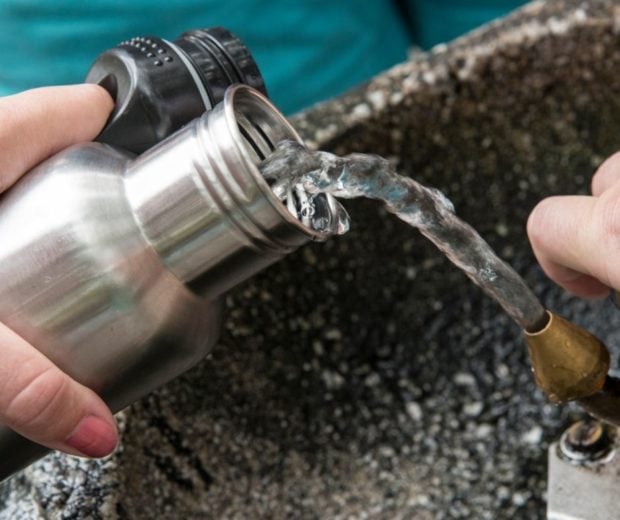MANILA, Philippines — Congress must pass a new sanitation law to ensure good quality water is available to all Filipinos, Manila 3rd District Assemblyman Joel Chua said Thursday.
Chua, speaking at the 18th National Congress of the Philippine Society of Master Plumbers, said the country’s plumbing laws are outdated, having been passed in 1955.
“Many of the country’s waterworks and sewage systems are ancient, dating from the post-war, pre-war and even the 19th century and beyond. Although some aspects of building and domestic plumbing in the 1955 Act have been amended accordingly by the National Building Code and its consequent rules and regulations, including structural engineering rules, much of the Plumbing Act of 1955 remains in effect,” he said.
“Sixty-eight years ago, way back in 1955, when the Sanitation Act went into effect, there were only the beginnings of government housing projects, there weren’t housing developments and townships like the ones we have today, there weren’t high-rise office buildings and condominiums, there weren’t any huge factories, industrial zones, skyways, expressways, multi-lane bridges with aqueducts, mini hydroelectric power plants, micro hydroelectric power plants and no solar heated water for houses and rainwater collection systems for different types of houses and buildings,” he added.
Of concern, Chua said, is that the country has many water treatment plants and high demand for bottled water — which only suggests the country’s water system is undrinkable due to possible contamination.
HWe also pointed out that the country’s water districts – which provide households with water for domestic use – are few given the estimated national population of 110 million.
“Most worryingly, the country has only 530 water districts that are operational and their coverage is only 23.8 million of the 110 million Filipino population – individuals and businesses included. The LGU (Local Government Unit) coverage of these water districts includes only 647 cities and towns,” Chua said.
The lack of a clean water supply poses many health risks, lawmakers said, as it is used to clean and disinfect.
“This situation has tremendous public health implications because it means these 86 million Filipinos are getting their water from other sources — primarily from deep wells, water pumps, rivers and streams — where water quality and safety is in serious doubt, leading to a Intoxication leads to incidence of diarrhea and polio and other waterborne diseases,” added Chua.
While bills have been submitted aimed at re-evaluating the country’s various building laws such as the existing building code, no proposal for a new sanitation law — amending Republic Law No. 1378 or the Sanitation Law — has been submitted.
Chua asked the Philippine Society of Master Plumbers to assist lawmakers in drafting legislation that addresses safety concerns surrounding the provision of water services.
“Help us in Congress improve your position in life by proposing how we can create a new sanitation law that will be effective in the 21st century.”
gsg
newsinfo.inquirer.net
https://newsinfo.inquirer.net/1750101/fwd-solon-says-new-plumbing-law-needed-to-ensure-safe-water-supply-for-filipinos















